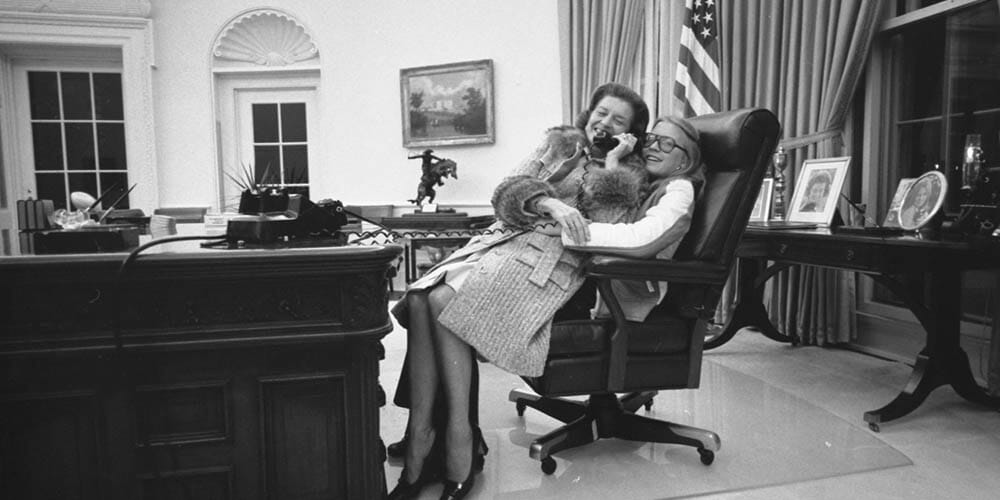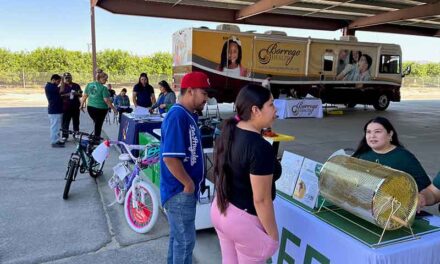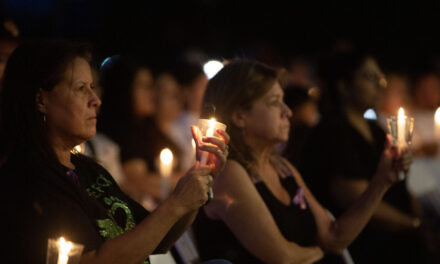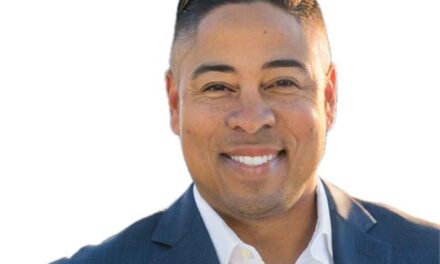Photo Courtesy of Susan Ford Bales
As First Lady of the United States from 1974-1977, Betty Ford was known for her candor. She was never more blunt and open than in 1978 when she revealed to the world her struggle to recover from her addiction to alcohol and prescription drugs.
She wrote about it in her book, “A Glad Awakening.”
Ford vowed to help others address the disease of addiction. To that end, along with Ambassador Leonard Firestone, Betty Ford co-founded the nonprofit Betty Ford Center in 1982, in Rancho Mirage.
She died in July 2011, but her daughter, Susan Ford Bales, continues to serve on what now is called the Hazelden Betty Ford Foundation Board of Directors and speaks out as candidly and courageously as her mother did.
In a telephone interview with Uken Report, Ford Bales discussed what it was like living with one of the most high-profile alcoholics in the nation.
Q: How old were you when the nation became aware she was an alcoholic and what was that like for you?
A: “I was 19 when we did the intervention on her in 1978. I think that’s right. I was born in ’57; maybe you can do the math for me. I was 20 maybe. We did it April 1st of 1978. It was probably one of the hardest things I’ve ever done is to confront my mother about something that was killing her. As most people know, I tried to do it on my own 10 days or two weeks before we did the formal family intervention and she threw me out of the house and called me a monster and told me she never wanted to see me again.”
Q: I’m speechless. The whole family got involved then in the intervention?
A: “The whole family got involved. I realized … I warn people, do not try and intervene on somebody one-on-one by yourself. It’s not a good idea. When you do an intervention, you need to hire a professional who knows what they’re doing and teach you and train you on how to do it properly. We as a family picked a date. As my mother would tell you, it was the worst April Fool’s joke she ever received. But, she listened. What we said, we said with love and concern. The impact of the entire family being on the same page, I think, had so much to do with it. It wasn’t just me. It was my brothers and my brother Mike’s wife, Gail, because he was the only one married at the time and my father and everything else. Having the right people at the right time there makes all the difference in the world.”
Q: In ’78, forgive me, where were you? Were you still in the White House?
A: “No, we were in Palm Springs. They had left the White House. They had just moved into their new house that they had built in Rancho Mirage, Calif.”
Q: Would you be willing to share with readers how your mother’s alcoholism manifested itself in the household? Was she mean and angry, loving, silly, abusive physically or emotionally?
A: “I guess the way I would tell it is that alcoholism and chemical dependency is a chronic disease and people need to realize that it’s a chronic disease, that it progresses. My mother’s disease, she would call me in the morning because I was living in the desert at the time and she’d say, oh, will you come over for lunch and then how about we go shopping for the afternoon or something. I’d say, OK. My dad was traveling an immense amount. He was sitting on many boards and playing golf in many golf tournaments. It’s all documented. She talks about it in her book, “A Glad Awakening.”
“I was the one in the desert so I would go over there and by the time she got dressed it was like watching a robot. It took forever and you didn’t eat lunch until 1:30 in the afternoon and we would never get to go shopping because it was, oh, I need to go lay down. She isolated herself which is very common in the disease and people knew. I mean, that was I think the hardest part to realize is we all knew there was a problem, but dad would go to events in the desert and she wouldn’t go with him because she was too drunk. She had a pinched nerve in her neck and it was legit and so she had pain pills but she chose to take more pain pills than were necessary and then to drink alcohol on top of it.
“Let’s remember it’s 1978 and the warning labels on pill bottles are not what they are today. Today’s warning on pill bottles is very, very different than it was in 1978. But, I would go to many events with my dad because my mother couldn’t get it together enough. She would fall asleep at the dinner table and everybody in the desert knew something was wrong, but they were all talking behind our back and that’s what we didn’t know. We didn’t know until after she got sober and people were like, oh yeah, your mother would fall asleep at dinner and things like that. It’s an isolation. It’s a process of isolation. People who are drug addicts and chemically dependent and alcoholics would rather choose a drink and a pill over going to an event or a dinner or something else. It’s an isolating disease.”
Q: Would you be willing to share her drink of choice?
A: “It doesn’t matter. It doesn’t matter what her drink of choice was. It’s how your body reacts to the chemical. That’s what’s important. It just doesn’t matter what her drink of choice was.”
Q: Were you angry at her for being an alcoholic?
A: “I was in the beginning and then I learned … I went to the family program and I learned about the disease. That is the thing that I was angry at. I was angry at the disease. I still loved my mother desperately and wanted the mother back that I missed so desperately. What you discover in this process is that that person does return. They return a little bit different. I was the parent in our relationship and at that age to be the parent in the relationship, I was the one making decisions for her and deciding where she was going and what she was doing and that sort of thing because she was incapable. What I learned is my anger was at the disease and not at the individual.”
Q: How long do you think she was an alcoholic or how long had she been drinking before it became a problem and before the intervention?
A: “That’s really hard to pinpoint and it’s a question that many people have asked before. As I said, it’s a chronic disease, it’s a progressive disease. The thing is, my parents grew up in the era of everybody had a cocktail at the end of the day before dinner. That’s just what they did. As I said, it’s the way your body reacts to the alcohol and the medications ….”
“If you’ve ever read her book, “A Glad Awakening,” she talks about mental breakdowns and trying to cope with four children and raising four children when her husband was a young Congressman and traveling a lot and working for the Republican Party and things like that. She went to a psychiatrist. It’s just a different time. It’s a different era. I cannot pinpoint the day that I’d say, OK, she’s an alcoholic now. The disease progressed to the point that we were in trouble is the best way to put it.”
Q: How did you cope with her alcoholism?
A: “Well, I went to the family program and I learned about the disease and I educated myself about the disease. I began to go to meetings, to 12-step meetings. I continue to go to 12-step meetings. It’s a part of my skin I guess. It’s just a part of me. I read daily meditations; I still work in the field and sit on the board of the Hazelden Betty Ford Foundation. I continue to educate myself about this disease, because the disease still affects me. I’m still surrounded by alcoholics. I’m attracted to them. I love them. I just feel like I can make a big difference in their future so I want to continue to do as much as I can.”
Q: Was there ever a time when you and your mother were estranged because of her drinking?
A: “No, I think every mother and daughter situation goes through different times of estrangement. When she threw me out of the house and called me a monster and said I never want to see you again, I mean, that was really a very painful time. My mother and I, we never agreed on everything and there would be times that maybe we didn’t talk as often. I always talked to my mother probably three to four times a week.
“We were extremely close, and there were times that I didn’t agree with her decisions, but I learned how to respect them and respect her as an individual. I think the book, “The Four Agreements,” if no one’s ever read it, is a pretty incredible book that talks about relationships and judgment and it’s her decision and that sort of thing. Don’t make assumptions. If we all could live like that, I think it would certainly be a better world.”
Q: How did your mother’s alcoholism affect you?
A: “Well, I think the biggest thing is it made me aware of the disease. It has affected me in many, many ways in the sense that I married an alcoholic, I’m now divorcing one. I’m attracted to alcoholics because I like to be in control and I need to work my Al-Anon program on a daily, daily basis. I love alcoholics because I like to be in control.”
Q: Wow, Susan. That is profound.
A: “I need to step back and live my own life, not somebody else’s.
Q: Does it affect you still today?
A: Absolutely, yeah, because it’s my skin. There isn’t a day that doesn’t go by that I don’t have to practice what I’ve learned in Al-Anon, to put me first, take care of me first and things like that. I’ve been, I guess … I don’t know if subjective is the right word. For so long I’ve been around it. I need to work my own program.
Q: You alluded to this and I really want to make sure I get this right. You are still involved with the Betty … Is it Hazelden Betty Ford now?
A: It is now the Hazelden Betty Ford Foundation. It merged three, maybe almost four years ago.
Q: You sit on the board?
A: I sit on the board, yes.
Q: What advice do you have for children of alcoholic parents?
A: “I think the biggest thing is to offer them hope, especially young children. At the Betty Ford Center, we have a children’s program that Jerry Moe does. It is for children who are basically from the age of 8 to 12 whose parents are either addicted or alcoholics or whatever. These kids feel like it’s their fault and the reason mom and dad drink is because I didn’t get an A or it’s that kind of a thing. Jerry offers them hope and how to deal with that, and then they did not cause their parents’ alcoholism. It’s just a magical, magical program. We do it in Denver, we do it in Rancho Mirage, and we do it in Texas. It’s just a magical program.
“I think the biggest thing is to offer them is hope, hope that their parents will get sober, and hope that they can change their lives. We’ve certainly seen it with kids who have gone through the children’s program. They get off to college, they start using and start down that road, and who do they call? They pick up the phone and call Jerry and go, ‘I think I’m headed to do the same thing that my parents did.’ It’s like an early intervention on these kids. You start giving them information, you start educating them about the disease, and it comes back two-fold because they go, ‘Oh, this is something I learned at the children’s program and they know where to turn to for help.”
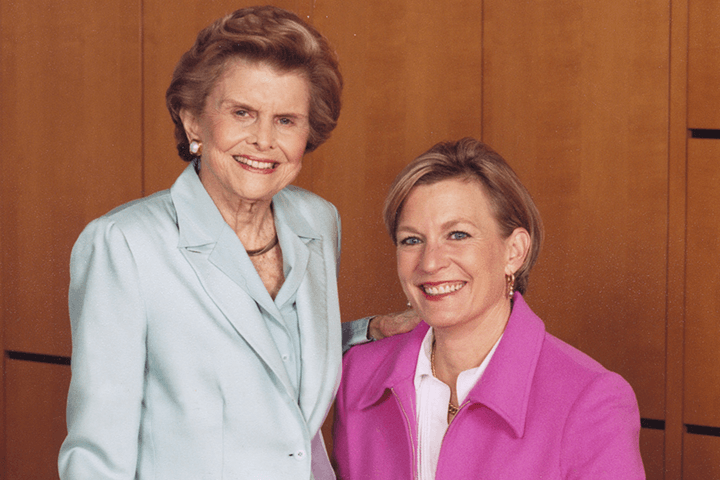
Photo Courtesy of the Hazelden Betty Ford Foundation
Q: This issue is obviously very personal. Is there anything you would be willing to share that I didn’t ask?
A: “No, I think the biggest thing is don’t give up on your alcoholic or your addict. Continue to try to help them and love them. They’re very lovable people. Love them and keep trying. The person doesn’t always get sober the first time around and some people may relapse, but remember it’s the disease that you’re angry at, not at the individual. That’s really a difficult concept.”

